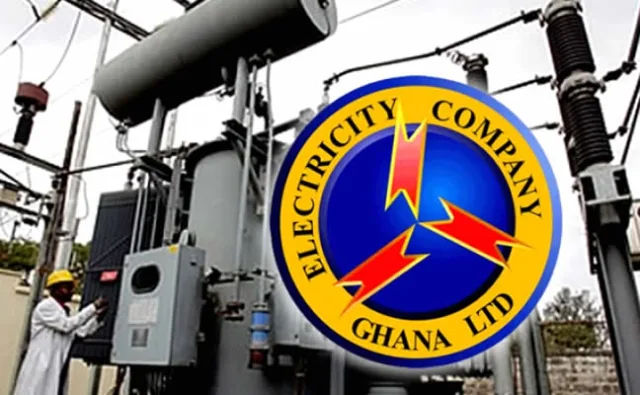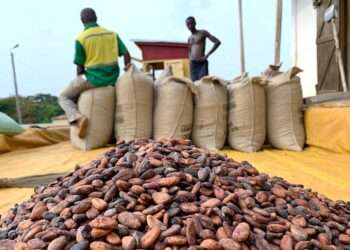The International Monetary Fund (IMF) has confirmed that Ghana’s energy sector reforms are yielding tangible results, marking a significant turning point for one of the most financially strained parts of the country’s economy.
The progress comes as the government successfully renegotiates legacy arrears and power purchase agreements (PPAs) with most Independent Power Producers (IPPs), signalling a meaningful recovery in the long-troubled sector.
According to Ruben Atoyan, head of the IMF mission to Ghana, the government has made “notable strides” in addressing systemic inefficiencies that have long weighed down public finances.
“The authorities made notable strides in addressing long-standing challenges in the energy sector.
“The government has renegotiated legacy arrears and power purchase agreements with most independent power producers (IPPs).”
Ruben Atoyan, head of the IMF mission to Ghana
The development came as the IMF concluded its fifth review mission of Ghana’s three-year Extended Credit Facility (ECF) programme in Accra.

The Fund announced that it had reached a staff-level agreement with the government, paving the way for the release of about $385 million, pending approval by the IMF Executive Board.
“Tariff adjustments are now conducted quarterly, helping better reflect costs. Payments through the Cash Waterfall Mechanism have also increased significantly.”
Ruben Atoyan, head of the IMF mission to Ghana
These measures, he explained, are beginning to instill greater financial discipline across the energy value chain a sector that had been a chronic source of fiscal pressure for over a decade.
The IMF believes that the restructured IPP contracts, coupled with the enhanced Cash Waterfall Mechanism, will help reduce the accumulation of new arrears, strengthen liquidity within the power sector, and ensure a more stable and predictable supply of electricity.
Fiscal Burden Being Reversed

Ghana’s energy sector reforms mark one of the most crucial milestones under the IMF-supported programme.
Over the years, unbalanced power purchase contracts, accumulated arrears, and inefficient tariff structures led to mounting fiscal costs that eroded the government’s ability to invest in other sectors.
Under the current reforms, the government has implemented a quarterly tariff adjustment system, allowing the Electricity Company of Ghana (ECG) and other utilities to align tariffs more closely with cost trends, particularly in response to exchange rate movements and global fuel prices.
By improving payment flows through the Cash Waterfall Mechanism, a framework designed to ensure equitable distribution of power sector revenues, the government is gradually stabilising the financial operations of sector players.
These improvements, according to analysts, could help restore investor confidence and attract new private sector participation in Ghana’s energy infrastructure.
IMF Notes Strengthening Macroeconomic Recovery

Beyond the energy sector, the IMF’s fifth review mission pointed to broader signs of economic stabilisation and recovery.
“Macroeconomic stabilisation is taking root.
“Growth in the first half of 2025 was stronger than anticipated, underpinned by robust services activity and agricultural output.”
Ruben Atoyan, head of the IMF mission to Ghana
He added that international reserves accumulation had exceeded programme targets, while the cedi appreciated significantly in the first half of the year, a marked improvement compared to 2024, when the local currency faced intense pressure.
The IMF further reported that Ghana achieved a primary surplus of 1.1 percent of GDP in the first eight months of 2025 and remained on track to meet its 1.5 percent target by year-end.
The Fund attributed this to continued fiscal consolidation, stronger revenue performance, and expenditure controls.

The IMF noted, “The government remains committed to adopting a 2026 budget aligned with the Fiscal Responsibility Framework,” adding that the measures taken so far reflect “credible progress toward restoring debt sustainability and long-term fiscal health.”
The government’s success in renegotiating expensive PPAs and implementing cost-reflective tariffs is seen as critical to stabilising the country’s broader fiscal position.
However, experts caution that sustained discipline and transparency will be vital to ensuring that the current progress is not derailed by political or macroeconomic shocks.
The IMF has urged Ghana to maintain strong governance and oversight mechanisms to safeguard recent gains and prevent a relapse into inefficiency.
As the government moves forward with the remaining phases of the reform agenda, stakeholders across the energy and financial sectors are hopeful that the current momentum will be sustained, helping to transform long-standing vulnerabilities into long-term opportunities for growth and resilience.
READ ALSO: BoG’s $1.15bn FX Injection Sparks Clash with IMF and World Bank Over Cedi Stabilization





















